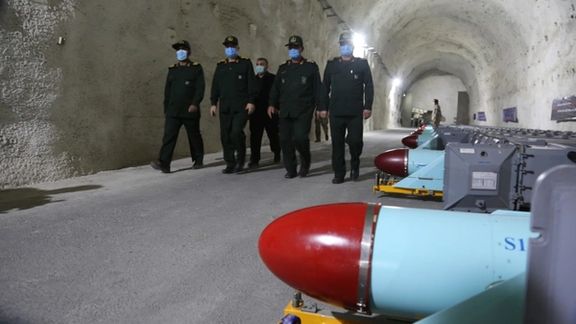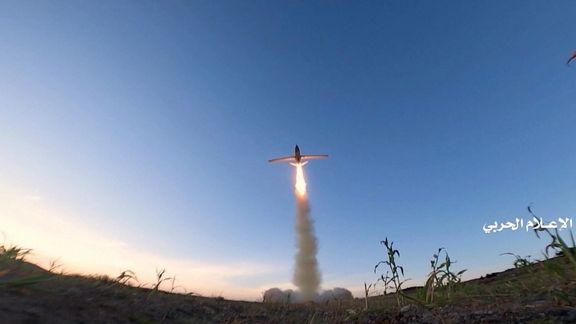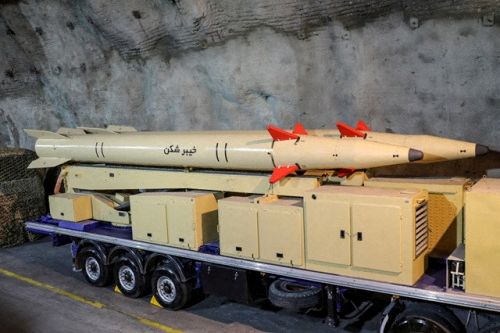Israeli Parliament Told Regional Air Defenses Already Thwarting Iran

Israeli Defense Minister Benny Gantz claimed Monday United States-led regional air-defense had stopped Iranian attacks on Israel and “other countries.”

Israeli Defense Minister Benny Gantz claimed Monday United States-led regional air-defense had stopped Iranian attacks on Israel and “other countries.”
Speaking to the Israeli parliament’s defense and foreign affairs committee, Gantz referred both to a shared vision and a “program” that was “already operative.” Gantz said the visit to Israel and Saudi Arabia in mid-July of US President Joe Biden would “support this process.”
“I have been leading for the past year together with my colleagues at the Pentagon and the [Biden] administration an extensive program to strengthen cooperation between Israel and the countries of the region, under American leadership and Centcom [US Central Command, covering the Middle East],” Gantz said.
“Part of that vision is what I call MEAD, Middle East Air Defense, which we are building amid Iran’s attempts to hit the region’s countries with rockets, cruise missiles and UAVs [unmanned aerial vehicles, or drones].”
Possibilities for coordinating air defense were reportedly discussed at the March meeting in Negev of foreign ministers from Israel, the United Arab Emirates, Bahrain, Morocco, Egypt, and the US.
Israel has been working to improve relations with the Persian Gulf monarchies especially since the 2020 ‘normalization’ agreements with Bahrain and the UAE, arguing they face a common threat in Iran. The Israelis link Syria, where Iranian presence in support of President Bashar al-Assad and Hezbollah, and Yemen, where Iran backs Ansar Allah, known as the Houthis, fighting a Saudi coalition that intervened in the civil war seven years ago. Saudi Arabia has faced intermittent Houthi missile and drone attacks since 2019. Iran has been accused of supplying the weapons to the Houthis.

Rather than following Bahrain and the UAE in ‘normalizing’ relations with Israel, Saudi Arabia has stuck to Arab League policy of insisting Israel first accepts a viable Palestinian state.
‘Powerful responses’
Gantz addressed a sense among many Israeli politicians that tensions with Iran are worsening, especially after the alleged killings of Iranian scientists and officers by Israel. He said he had ordered “powerful responses” prepared after reports Iran would kidnap Israelis in Turkey. His remarks came hours after Israeli authorities suspected an Iranian cyberattack had triggered rocket sirens in Jerusalem and Eilat Sunday.
Gantz said the Israeli government has been successful in “enlisting international support in our struggle against Iran in recent months," which he said included “our efforts to keep the designation of a terror organization, for the Iranian Revolutionary Guard Corps, and in the condemnation of Iran by the IAEA.”

Year-long talks in Vienna aimed at reviving the 2015 international agreement limiting Iran’s nuclear program have been paused since March, reportedly because the US has refused Tehran’s request to remove its Revolutionary Guards (IRGC), around half its defense forces, from Washington’s list of ‘foreign terrorist organizations.’ Israel opposed the 2015 deal, the JCPOA (Joint Comprehensive Plan of Action), which the US left in 2018.
Europe Backs Restoring JCPOA
Addressing Gantz’s remarks on air defense, an Israeli official said “partner countries” were synchronising efforts through electronic communication rather than using the same physical facilities. Some US-based analysts have suggested Washington is fostering closer cooperation between Israel and Arab Gulf States in order to help fill a gap left by the withdrawal of US hardware.
The Council of the European Union Monday agreed a document, ‘Council conclusions on a strategic partnership with the Gulf’, that welcomed “recent positive steps, including…the normalization agreements with Israel…and the recent agreement on a truce and on confidence building measures in Yemen as a major development, offer opportunities for improved wider regional security and stability.”
But the EU also reiterated support for the “restoration and full re-implementation” of the JCPOA, which it said had “the potential to contribute positively to regional prosperity and security.”